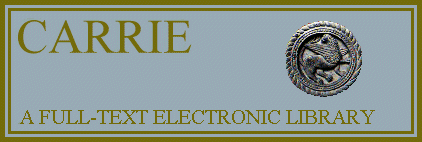
|
THERE is a staggering body of literature on the subjects of Judaism and the Spanish Inquisition, in both secondary and primary sources. For the Jews, ~the most useful works are those of Heinrich Graetz, Cecil Roth, Joseph Jacobs, Abraham Neuman, Jose Amador de los Rios, and Nicolas Lopez Martinez. Facts and fancy about the early years of the Inquisition may be found in the writings of Henry C. Lea, Juan Antonio Llorente, Julio Melgares Marin, Francisco Javier Garcia Rodrigo, Miguel de la Pinta Llorente, and Bernardino Llorca, among many others. For the writings of contemporaries of the events described here, one may examine the many published chronicles of the fifteenth and early sixteenth centuries which are listed in abundance in Sanchez Alonso's Fuentes para la historia de Espana e hispanoamerica. The most important primary materials, however, are the documents themselves. Many of them have been printed, both with and without comment, by Jewish and Spanish scholars of the nineteenth century in three learned journals: Sefarad, the Revue des etudes Juives, and the Boletin de la Real Academia de la historia. The latter is perhaps the most valuable of all, due primarily to the tireless and meticulous labors of the Spanish Jesuit investigator, Fidel Fita. More recently, the German scholar Fritz Baer has published two massive volumes of documents (Berlin, 1926-1936), under the title Die Juden im Christlichen Spanien. |
|
He has included in this project-either in full or in abstract - the extant documentary material on Spanish Jewry from the Middle Ages to the year of the expulsion, with a few additional items on the immediate aftereffects, from which the final chapter of the present study has been prepared. I have read many of the original trials of the early Inquisition years, which are housed in the Archivo Historico Nacional in Madrid, and it has also been my good fortune to go through the original papers in the Henry C. Lea collection at the University of Pennsylvania, which contains much useful material from which Mr. Lea drew for his studies on the Spanish Inquisition. There is, however, no simple correlation between the extent of one is investigations and his "objectivity" when writing about a subject Like the Spanish Inquisition. All the literature on this topic, including the present work) is charged with the personal views of its authors. It is all, therefore, "partisan" or "subjective," although it may vary in reliability according to the authors 1 use of documentary sources and their sense of historical rectitude. I have no desire to single out any particular class, unless they single themselves out first for special consideration, and it appears to me that three modern Spanish authors have done this. Nicolas Lopez Martinez, Bernardino Llorca, and Miguel de la Pinta Llorente, who are understandably "reasonable" about the Inquisition, are all careful investigators whose historical methods of research are above reproach. They insist, however, that because they work from documents, their viewpoints and conclusions are as "objective" and |
|
"unprejudiced" as their methodology. They likewise insist that all other historians who see things differently from themselves are "biased" and "prejudiced" and cannot be relied upon. The fact remains that other historians besides our three Spanish colleagues are quite as conscientious and capable in matters of methodology, and are every bit as trustworthy. Both "sides" operate within the framework of certain values and ideals: the judgments of Henry C. Lea, for example, are quite apparent, and he makes no pretence about his feelings. Less overt, perhaps, but equally apparent nonetheless, are the preconceptions of his critics. The latter's preemption of the ritualism of "objectivity" and "impartiality" puts one in mind of Shakespeare's observation about people who protest too much. The only advice I can give to the student of this subject is to be alert to the predispositions of all of us, especially when we suggest that we alone have the Truth. |
 Return to Carrie Home Page - Return to the Carrie Donated E-Books Home Page
Return to Carrie Home Page - Return to the Carrie Donated E-Books Home Page